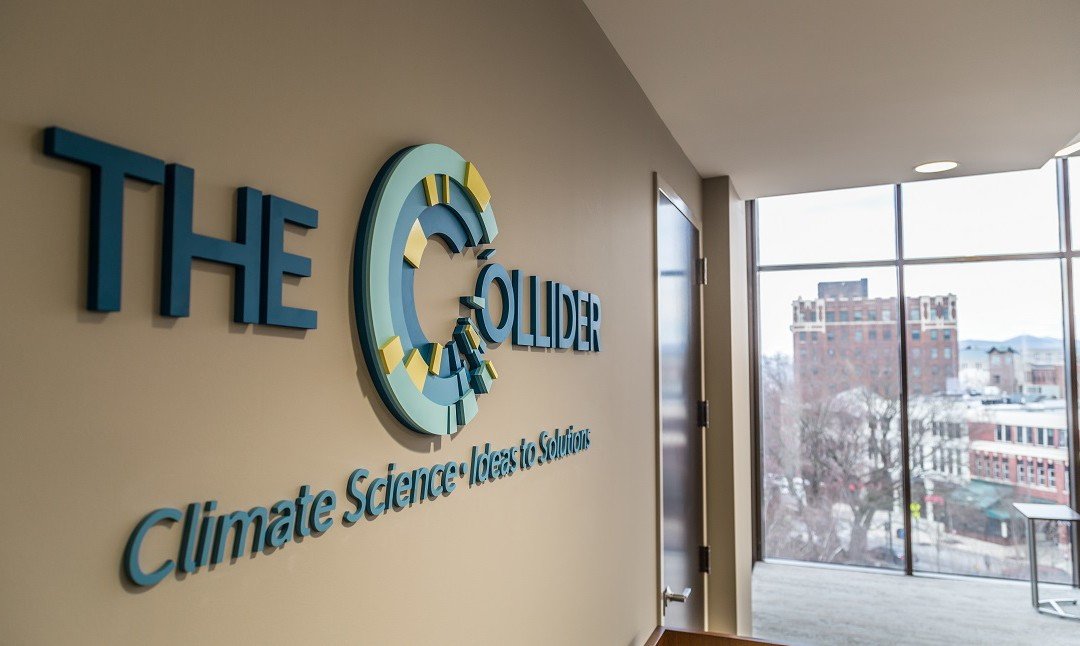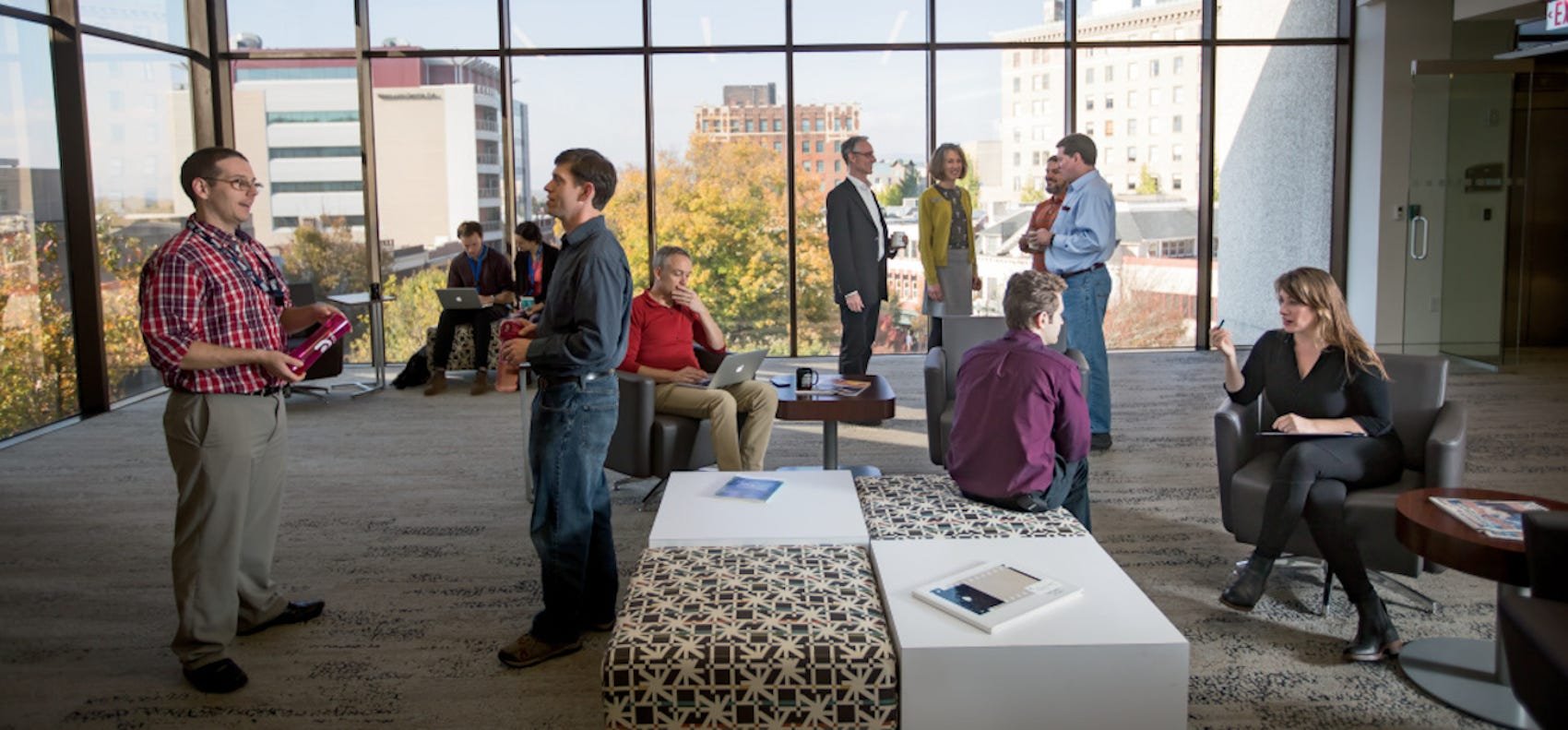
Welcome!
You'll find the Collider on the fourth floor of the Ocean Asheville building in the very center of downtown Asheville, overlooking beautiful Pritchard Park and the historic S&W building. We feature event and meeting spaces, a spacious co-working area, conference rooms, and large office suites.
This contemporary office and event center's attractions include an abundance of natural light, floor-to-ceiling windows, views of the surrounding city center and stunning Blue Ridge Mountains, and inviting spaces to interact with fellow tenants and guests.
Collaboration between small businesses and the scientific community, along with non-chain businesses contribute significantly to Asheville’s economy, and the Collider has been a connective thread intersecting the scientific, business, and local communities. The Collider partners with local businesses, organizations, and individuals to host events on topics such as climate informatics, climate-resilient architecture, local efficiency programs, and many others, that are timely and relevant to our community.
Our event venue is perfectly suited for corporate functions such as lectures and continuing education workshops, company retreats, and conferences, yet it also easily accommodates social events like fundraisers, book signings, retirement ceremonies (military and civilian), and networking gatherings.
Coworking space and private offices within the Collider offer an extraordinary working experience, with opportunities for tenants to network, collaborate, and collide with others in the course of a workday or at events hosted within the venue. Collider tenants have all the amenities of being located in heart of the city, within easy walking distance to a multitude of restaurants, coffee shops, and distinct, local businesses.
We hope to see you at The Collider soon!
The Collider acts as a hub for a diverse network of climate organizations. We believe forging solid connections between organizations in the climate industry will allow this critical sector to grow as we begin to build new strategies to mitigate climate impacts, adapt to, and build resilience against a changing climate. We support our members by offering internal communication channels, networking events, fostering collaboration, and more.
The Collider is inspired by:
“A generative social impact network. A social impact network is defined as a group of individuals or organizations that aim to solve a complex problem in society by working together, adapting over time, and generating a sustained flow of activities and impacts. A generative social impact network is also mutually beneficial. It engages its members and adds value to their work; in exchange, members add value to the network through their work and engagement.”
Some examples of Collider members work includes developing innovative technologies, focus on climate and health, wetland delineation applications, and interactive climate modeling tools. These contributions and others are used by leading policy-makers. Other members specialize in providing essential services like ecological consulting, climate-smart community training, and climate advising. With members across the world aligned under a common vision of combating climate change, The Collider is truly a unique organization.
The Collider also partners with local businesses and organizations to host events on topics pertinent to our community such as local food, walkable cities, climate-resilient architecture, urban forestry, and more.
Climate City™
In 1951, the Federal Government moved all weather records to Asheville, North Carolina, where the archives at the U.S. Weather Bureau, Air Force, and Navy combined to form the National Weather Records Center (NWRC).
In Asheville, the Federal Government was already using one of the largest buildings in the South, the Grove Arcade. It was a desirable location to house millions of pages of weather observations and a rapidly expanding database of computer punch cards. Asheville was also relatively isolated and inland thereby protecting these critical records from both foreign enemy attack, and hurricanes, which were more likely to impact coastal locations.
The organization was incorporated, with all civil weather entities, as part of the National Oceanic and Atmospheric Administration (NOAA) in 1970. That same year, the NWRC changed its name to the National Climatic Center. In 1982, 12 years later, the organization was renamed the National Climatic Data Center (NCDC). The National Climatic Data Center moved into its current location, the Veach-Baley Federal Building, a block from the Grove Arcade, in 1995.
In 2015, NOAA consolidated three data centers to create the National Centers for Environmental Information, with the Asheville facility serving as headquarters and managing data from the bottom of the ocean to the surface of the sun.
The Collider launched in 2016 with the opening of its headquarters in downtown Asheville, North Carolina — also known as Climate City™.





